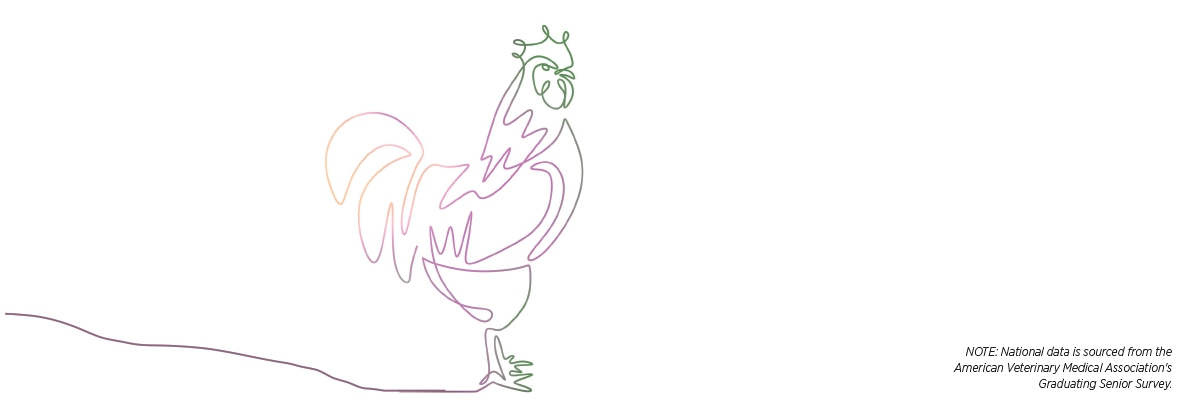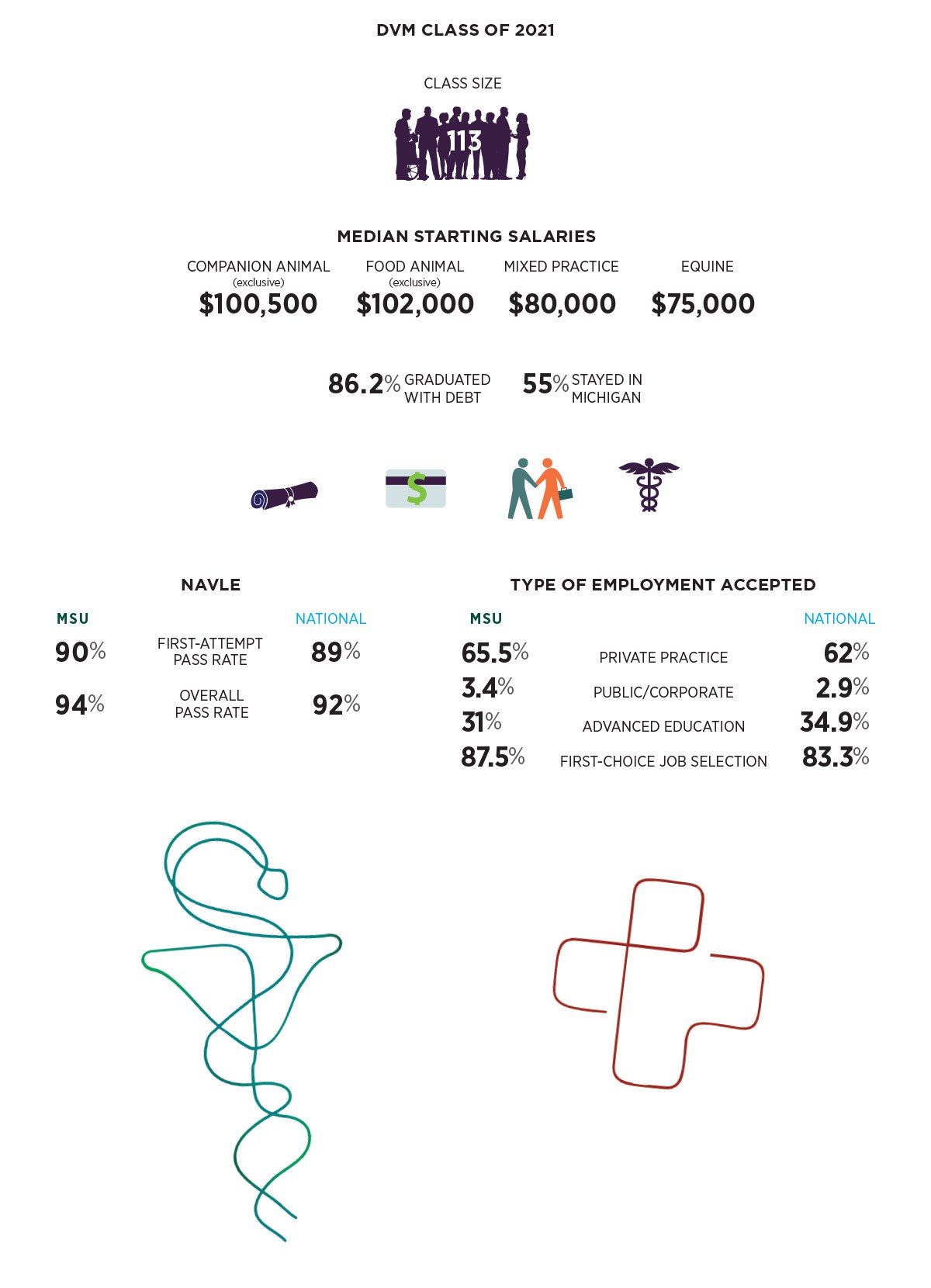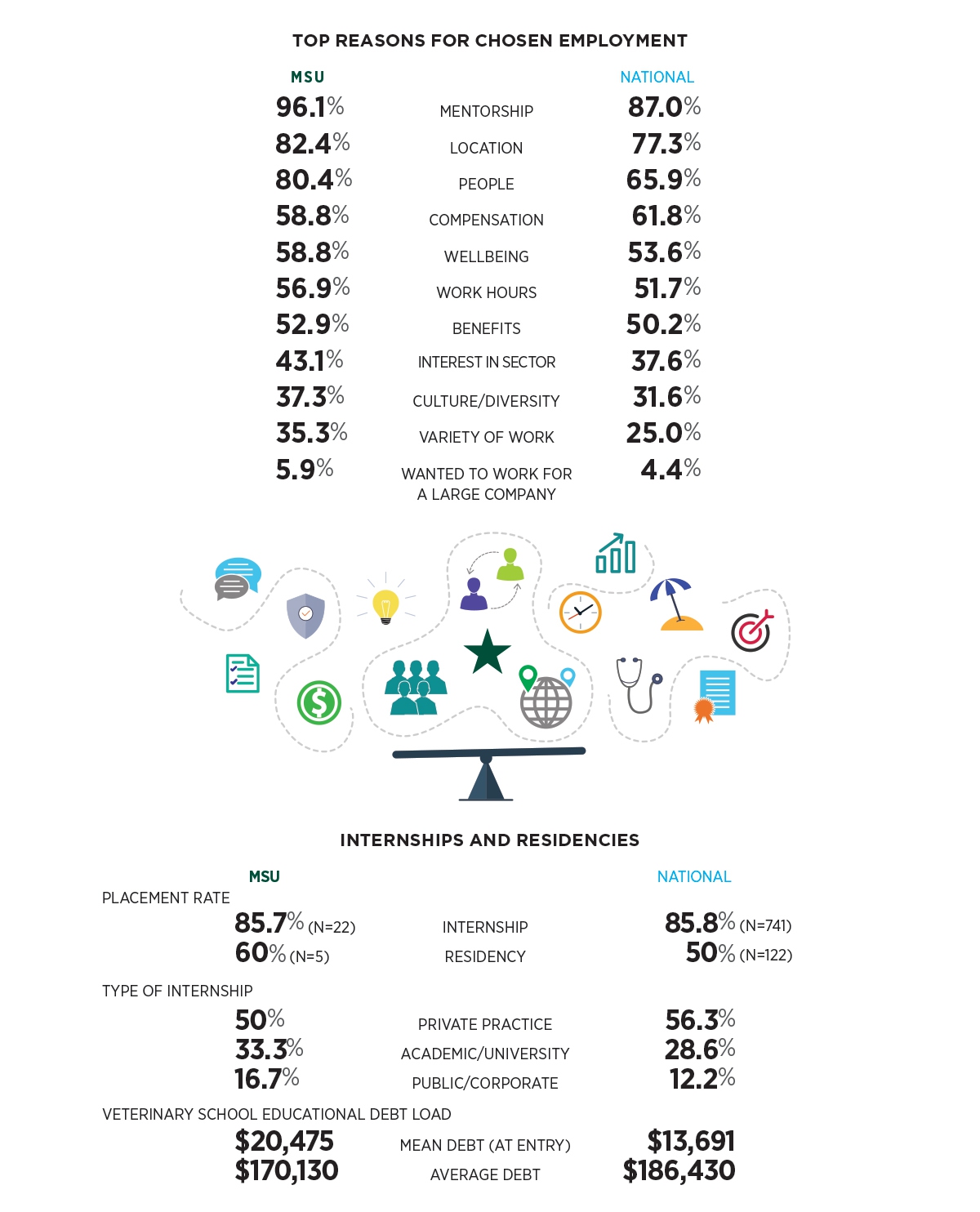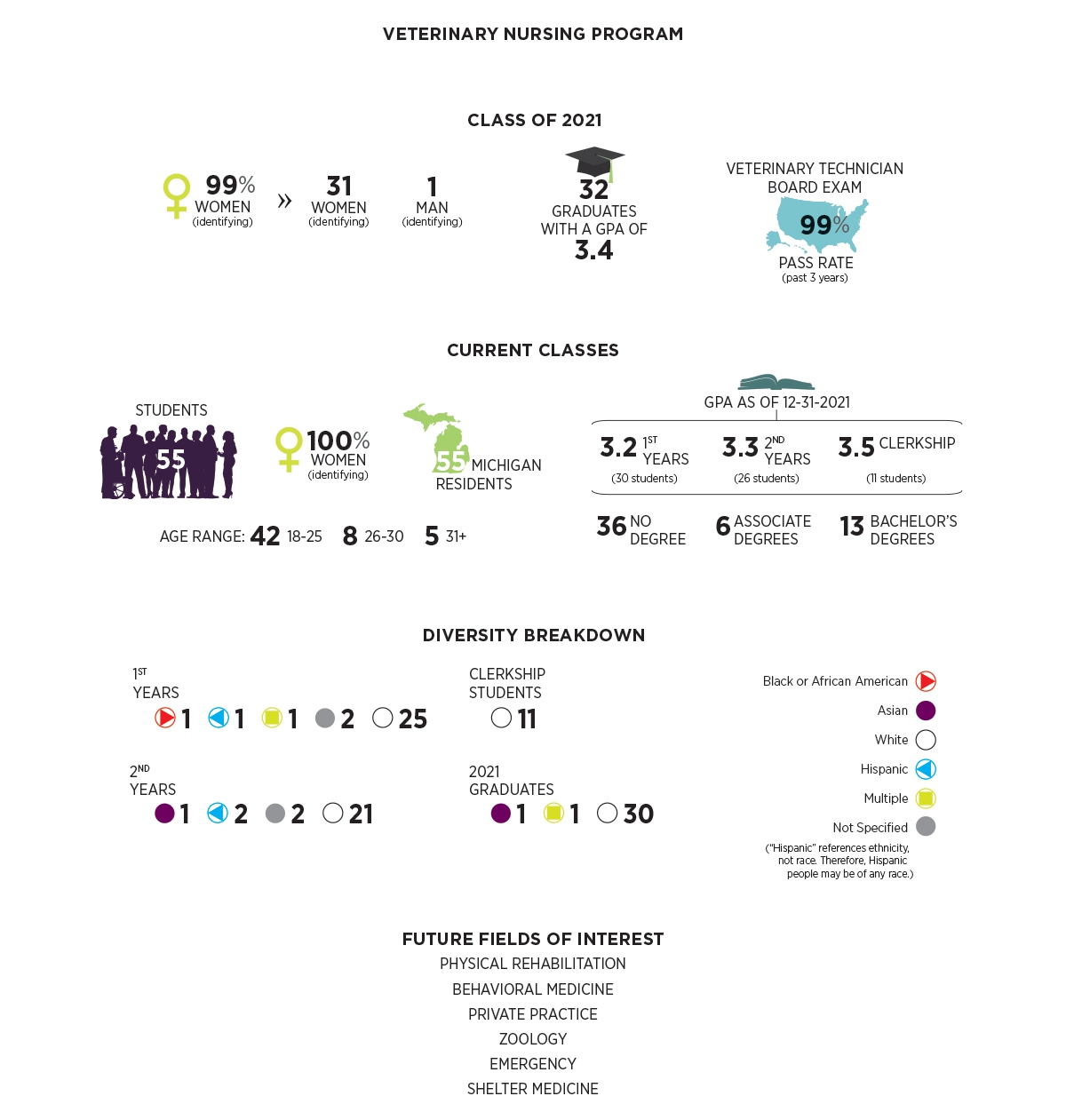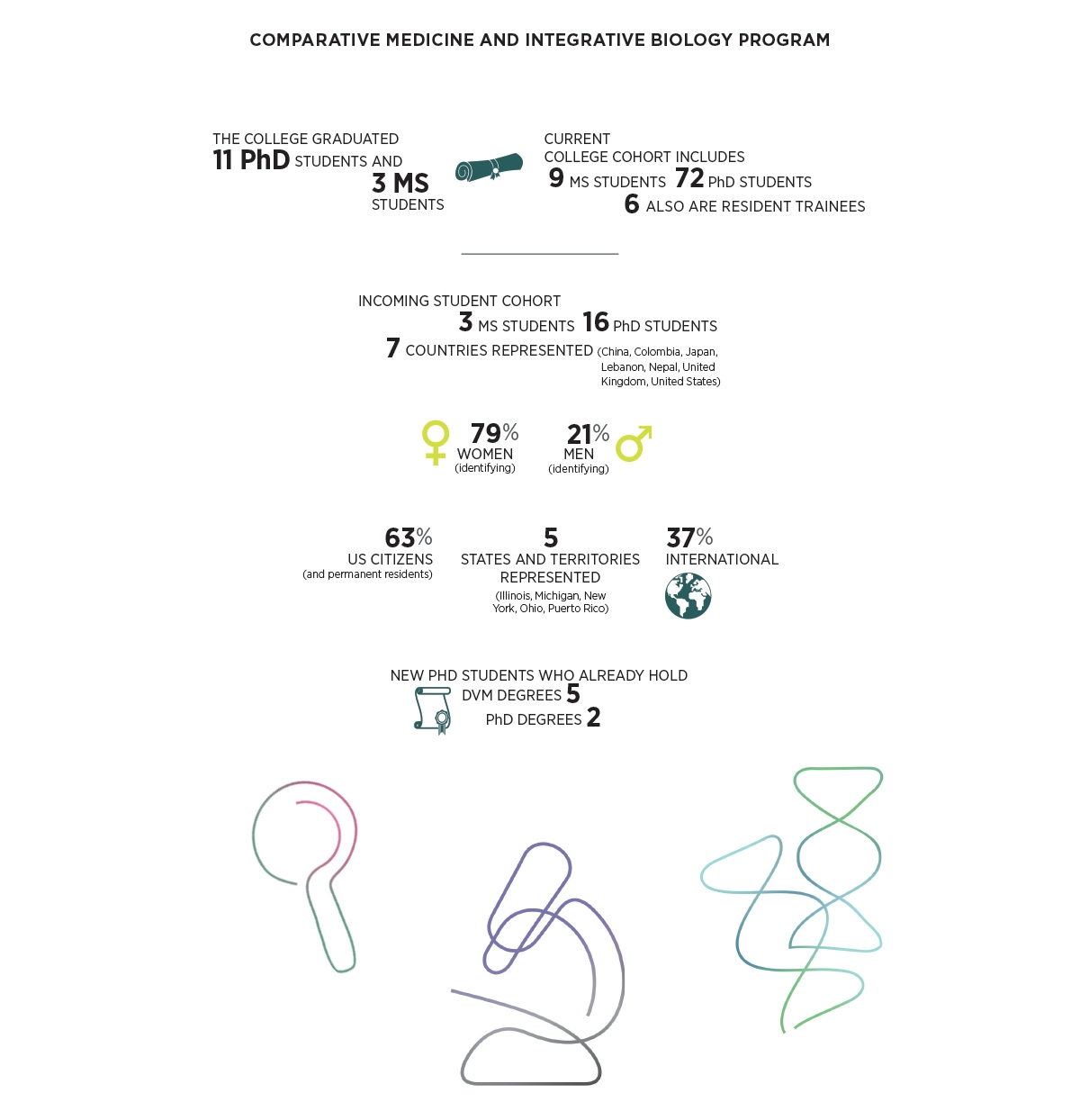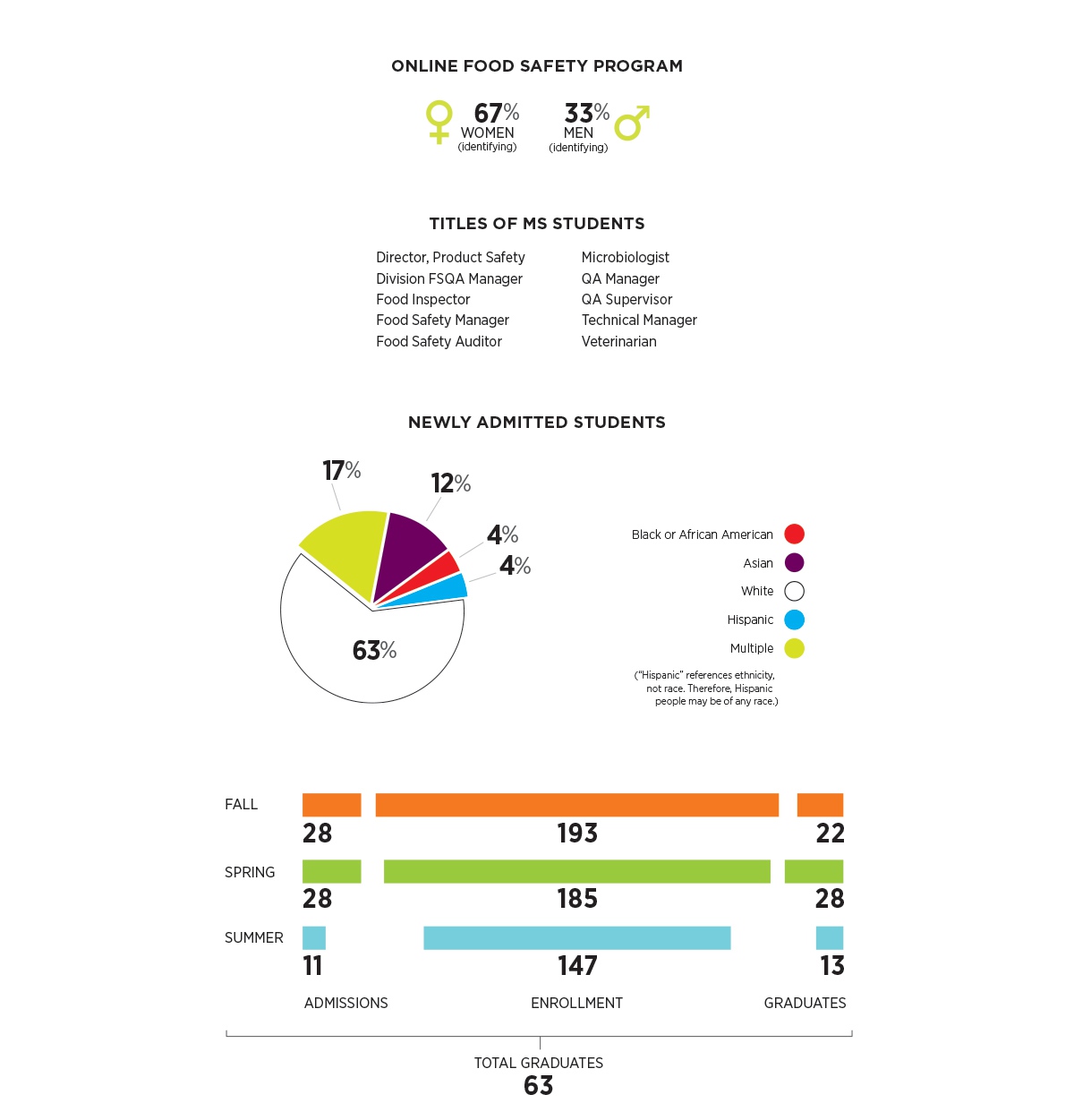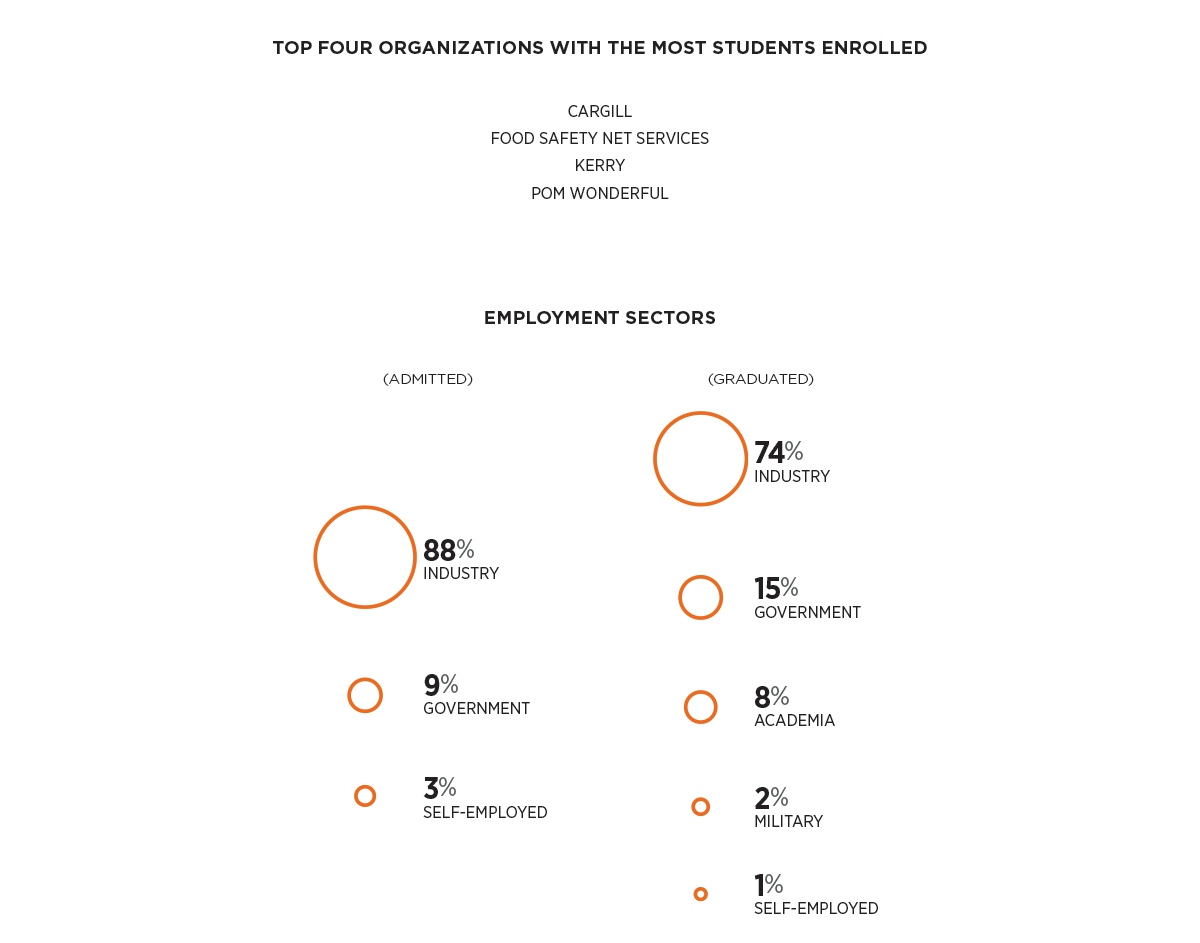The DVM class that graduated in 2021 entered a workforce climate unlike any previous class. A year into a pandemic and at crisis-level shortages of veterinary professionals, these veterinarians brought valuable skills and a fresh perspective to the game. The high demand for veterinarians is highlighted by the fact that 87.5 percent of MSU’s 2021 graduates were hired by their first-choice employer.
As the College’s graduates entered the workforce, its preclinical classes also faced pandemic-related changes to their learning and other challenges, but tackled all obstacles boldly.
Students in and graduates of the College’s Veterinary Nursing Program continue to advance the field’s knowledge and prestige through the pursuit of many fields within veterinary medicine. Students surveyed indicated interests in zoology, emergency medicine, shelter medicine, private practice, and behavioral medicine.
Research activities at the MSU College of Veterinary Medicine are bolstered by the diversity of its graduate student population. The newest cohort joined
the College from China, Colombia, Japan, Lebanon, the United Kingdom, and, of course, the United States, the majority of whom identify as female.
Students from the College’s Comparative Medicine and Integrative Biology Program and other graduate programs work to address real-world health issues that affect animals, people, and the environment. In doing so, these Spartan scientists gain invaluable experiences in laboratories, the field, and on clinical rounds that ready them for the future.
This past year, Michigan State University’s Online Food Safety Program at the College of Veterinary Medicine saw the largest number of graduates in history. The Program caters to both graduate degree and non-degree-seeking working professionals, especially mid-career and mid-management professionals. Since 2002, MSU Food Safety students have pursued online degrees, online and transcriptable certificates, on-campus executive education, and continuing education courses.
